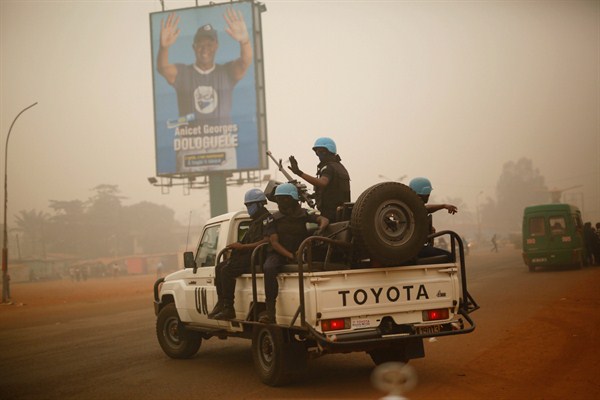What does a small spat in the Security Council over the Central African Republic, or CAR, tell us about the state of major power relations?
Last week, the council was unable to agree on the terms of a six-month extension to the 13,000-strong United Nations stabilization mission in CAR, known by its French acronym MINUSCA. The diplomats gave themselves a month to fix their differences over the operation’s mandate. There seem to be three main points of contention.
One is Moscow’s insistence that the council endorse a Sudanese-Russian effort to mediate the fragmented country’s conflicts. France, the former colonial power, and its allies see this as an ill-concealed ploy by Khartoum to boost its regional influence. They also worry that Russia, which has sent military advisers and mercenaries to help train the Central African army, wants to regain the influence it lost in Africa after the Cold War—or at least get access to CAR’s rich mineral deposits.

